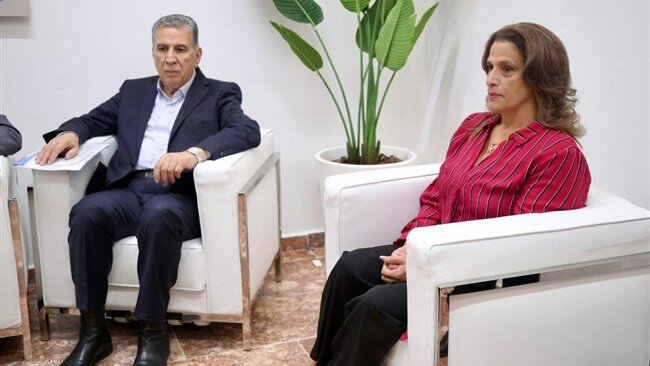Iranian trade mission eyes industrial revival, investment opportunities in Cuba

TEHRAN – An Iranian business delegation has opened discussions in Havana on a series of potential investment projects aimed at reviving Cuba’s stalled industrial capacity, expanding bilateral trade and strengthening cooperation in key sectors ranging from sugar and cement to mining, steel and pharmaceuticals.
Industrial recovery and manufacturing opportunities
Smad Hassanzadeh, head of the Iran Chamber of Commerce, Industries, Mines and Agriculture (ICCIMA), who leaded the delegation, said Iran sees “significant potential” to help reactivate idle Cuban plants, particularly in sugar production and cement manufacturing.
He asked the Cuban Chamber of Commerce to provide a list of factories that have gone dormant and outline the country’s priority needs to guide Iranian companies exploring investment opportunities.
Hassanzadeh said both nations have endured years of heavy sanctions but have developed capacities in industrial machinery, agricultural technology, food processing and engineering services. He said Iran could play a role in restoring Cuba’s once prominent sugar industry and noted that cement was another sector where joint production would be more efficient than Cuban imports. He added that Iranian investors were prepared to build several cement plants in Cuba under clear regulatory conditions and investment guarantees.
He also pointed to complementarities in the pharmaceutical and medical equipment sectors, saying the combination of Cuba’s biomedical expertise and Iran’s manufacturing capabilities could support new joint initiatives.
Mining, minerals and steel cooperation
Ghadir Ghiyafeh, ICCIMA deputy head, said mining represents one of the strongest pillars for long-term cooperation. He described Cuba as an underdeveloped but resource-rich mining market and said Iranian firms have advanced technical and engineering experience in mineral exploration, extraction and processing.
He said Iranian companies could support Cuba from geological surveys to production of cobalt and nickel, provided Cuban ministries outline investment procedures and offer clear legal frameworks. The Cuban government, he added, had indicated foreign investors would be allowed to repatriate earnings under recently updated laws.
Ghiyafeh also highlighted Iran’s six decades of experience in steel production and said engineering companies were ready to help train Cuban specialists and accelerate plans for a national steel plant. Khuzestan Steel Company, one of Iran’s major producers, has already expressed readiness to work with Cuban counterparts.
Call for structured investment proposals and regulatory clarity
In a separate meeting with Cuba’s minister of domestic trade, Hassanzadeh urged the government to prepare a formal investment package tailored for Iranian companies. He said Iran had the industrial depth to support a broad range of Cuban priorities—from agriculture and mining to petrochemicals, tourism and energy—provided Havana offers transparent rules for foreign investment.
He said Iranian firms were especially interested in rehabilitating large Cuban plants that have been inactive for years, but needed stronger familiarity with Cuba’s regulatory environment and assurances on investment security.

In the same meeting, ICCIMA Deputy Head Ghadir Ghiyafeh said a clear legal framework could help push bilateral trade volumes to one billion dollars within five years. He listed construction, roadbuilding, food industries, agriculture and mining as some of the preferred sectors for Iranian investors.
The Cuban minister said President Miguel Díaz-Canel has ordered ministries to identify opportunities for importing food, clothing and consumer goods from Iran following the 2025 Havana International Fair. He said Cuba aims to boost domestic production as a buffer against U.S. sanctions and is prepared to support foreign investors willing to take on risk.
Strengthening ties at Havana International Fair
During Iran National Day at the Havana International Fair (FIHAV 2025), Hassanzadeh said the presence of Iranian manufacturers and entrepreneurs reflected a shared commitment to expanding economic cooperation. He noted that despite sanctions, Iran has achieved significant advances across industrial, scientific and technological fields and urged both countries to translate their political ties into stronger economic outcomes.
He outlined areas where Iranian firms could contribute in Cuba, including dam construction, road and housing projects, hydropower development and renewable energy. He said both sides must deepen dialogue and plan jointly to unlock opportunities in biotechnology, energy and agriculture.
Cuba’s industry minister, Eloy Álvarez Martínez, said the two nations’ political solidarity should now be matched by practical cooperation, citing the 2023 comprehensive cooperation agreement as an essential framework. He said small, medium and large firms from both countries should form direct partnerships and move forward with defined industrial projects.
He added that Cuba values Iran’s long-standing support during its struggle against sanctions and said Havana hopes its collaboration with friendly nations will help drive the island toward broader economic development.
Cuban president invites Iranian food brands to Cuban chain stores
During a visit to Iran's pavilion at the FIHAV, the president of Cuba invited Iranian food industry brands to enter Cuban chain stores.
Miguel Díaz-Canel, the President of Cuba, visited various sections of the 41st Havana International Fair, being held during November 24-29 at EXPOCUBA Fairgrounds in Havana. Upon arriving at Iran's pavilion, he was welcomed by Hassanzadeh, Ghiyafeh, and Zabihollah Naderi, Ambassador of Iran to Cuba. He reviewed the production, industrial, and export capabilities of the Iranian companies participating in the event.
During this visit, the Cuban president spoke with representatives of the Iranian companies and learned about the details of Iran's products, services, and industrial and export capacities.
He expressed hope that this exhibition and the holding of trade conferences would pave the way for enhancing mutual cooperation, developing economic relations, and identifying new opportunities for bilateral trade between Iran and Cuba.
Miguel Díaz-Canel also emphasized that the Cuban government supports the expansion of economic exchanges and joint investments between the two countries.
Iran's pavilion was set up with the participation of companies active in the fields of petrochemicals, food industries, industrial equipment, clothing, commercial services, and the country's economic institutions.
The visit by the Cuban President indicates the special attention of his government to the potential for cooperation with Iran in various fields.
EF/MA
